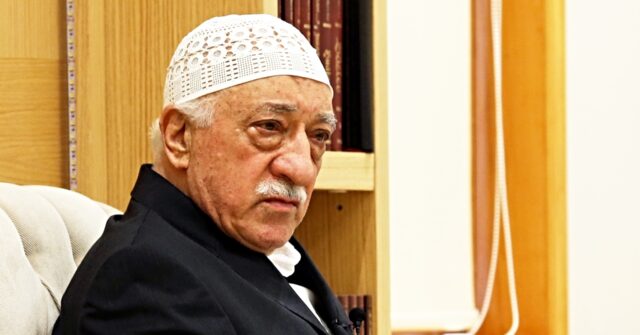Fethullah Gulen, the Turkish cleric and former political ally of President Recep Tayyip Erdogan, passed away in a U.S. hospital at the age of 83 on October 20, 2024. Gulen had been living in self-imposed exile in Pennsylvania since 1999. His relationship with Erdogan soured over the years, culminating in accusations that he orchestrated the failed coup attempt in 2016, a claim that Gulen vehemently denied. The Turkish government sought his extradition to face charges of treason, but these requests were consistently refused by U.S. administrations, including those of Obama, Trump, and Biden. His death follows a period of declining health, which had been a point of concern for his followers.
The Foundation for Dialogue and Education, an organization connected to Gulen’s Hizmet movement, confirmed his passing, stating that he had been undergoing treatment for an unspecified ailment. Turkish Foreign Minister Hakan Fidan also acknowledged Gulen’s death but framed it negatively, referring to Gulen as the leader of a “dark organization” that represented a threat to Turkey. Fidan portrayed Gulen’s demise as a step forward in the government’s ongoing fight against what it deems terrorism. His remarks reflected long-standing tensions, as the Turkish government has described Gulen’s movement as the “Fethullah Terrorist Organization” (FETO), alleging that it deceived and radicalized thousands in Turkey.
Since the 2016 coup attempt, the Erdogan administration has engaged in a widespread purge of Gulen’s followers from government and military positions, an action criticized by human rights organizations as a severe violation of religious freedom. The Turkish state has also pursued Gulenist individuals beyond its borders, employing tactics that some human rights advocates allege include harassment and assassination attempts. Throughout this, Erdogan and his supporters propagated conspiracy theories connecting Gulen with foreign intelligence agencies, specifically the CIA and Mossad, though these claims have consistently lacked substantiation.
Gulen himself condemned the coup attempt in strong terms and consistently denied having any involvement with it. Investigations by European Union intelligence officials found no evidence that Gulen coordinated the coup, despite the acknowledgment that some coup plotters were affiliated with his movement. Instead, EU reports suggested that Erdogan had orchestrated the coup attempt to justify purging his political opposition and consolidate power. While Turkey has sought to label Gulen’s movement as a terrorist organization officially, few governments have followed suit, and many still regard Gulen’s networks with skepticism, particularly concerning their operations in the United States, which include around 150 charter schools under Hizmet’s management.
Gulen’s movement, known for its worldwide network of educational institutions, cultural centers, and social services, has millions of adherents across over 100 countries. Despite the controversies, Gulen’s influence as a Muslim cleric initially aided Erdogan’s ascension in Turkish politics during the 1990s. However, the alliance between the two collapsed dramatically around 2013 when Erdogan accused Gulen of masterminding corruption investigations aimed at dismantling his government. This fracturing led to an intense political conflict marked by mutual accusations of conspiracy and betrayal.
In summary, Gulen’s death marks a significant moment in Turkish politics, amplifying existing narratives surrounding his movement and its adversities with the Erdogan regime. The Turkish government’s portrayal of Gulen as a terrorist and the associated purges highlight the ongoing tensions and authoritarian tendencies under Erdogan’s leadership. As Gulen had played a crucial role in Turkish society and politics, his passing may influence the dynamics of political power and the ongoing struggle against alleged terrorism in Turkey, even as the implications for his movement’s followers remain uncertain. The conflicting views on both Gulen and the Hizmet movement will likely continue to shape discourse around freedom, governance, and national security in Turkey for years to come.

